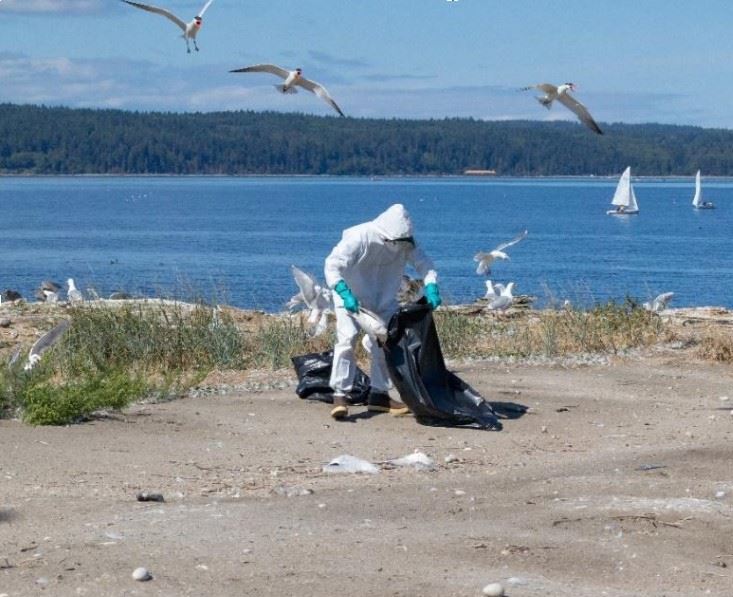 Photograph by Scott Pearson
Photograph by Scott Pearson
A symposium on Highly Pathogenic Avian Influenza, plenary talks from Dr Natalie Ban, Dr Gemma Clucas, and Dr Sarah Converse, and a workshop on bird banding, are just some of the highlights featured in the Scientific Program released by the Pacific Seabird Group for its 51st Annual Meeting (PSG2024).
The Symposium: Highly Pathogenic Avian Influenza, is described by organisers as an event to, "bring together experts to discuss the latest findings and developments in the emergence and spread of highly pathogenic avian influenza (HPAI) in seabirds. This symposium will focus on the epidemiology, ecology, and evolution of avian influenza in wild bird populations, assessments of mortality and population-level impacts, and strategies for surveillance, prevention, and control. Attendees will have the opportunity to gain insights into the challenges and opportunities for understanding and managing this important global wildlife health issue."
Convenors of the Symposium will be:
- Stephanie Avery-Gomm, Environment and Climate Change Canada, Science and Technology Branch, Wildlife and Landscape Science Directorate
- Simba Chan, Japan Bird Research Association / the Wild Bird Society of Japan
- Scott Pearson, Washington Department of Fish and Wildlife, Science Division
PSG2024 will be held at the Grand Hyatt Seattle, in Washington, United States, from 15 to 23 February under the theme, “Faces of Seabird Conservation”.
Details of the event including, the Scientific Program, field trips, registration, and the draft Agenda can be found on the PSG website.
10 January 2024

 English
English  Français
Français  Español
Español 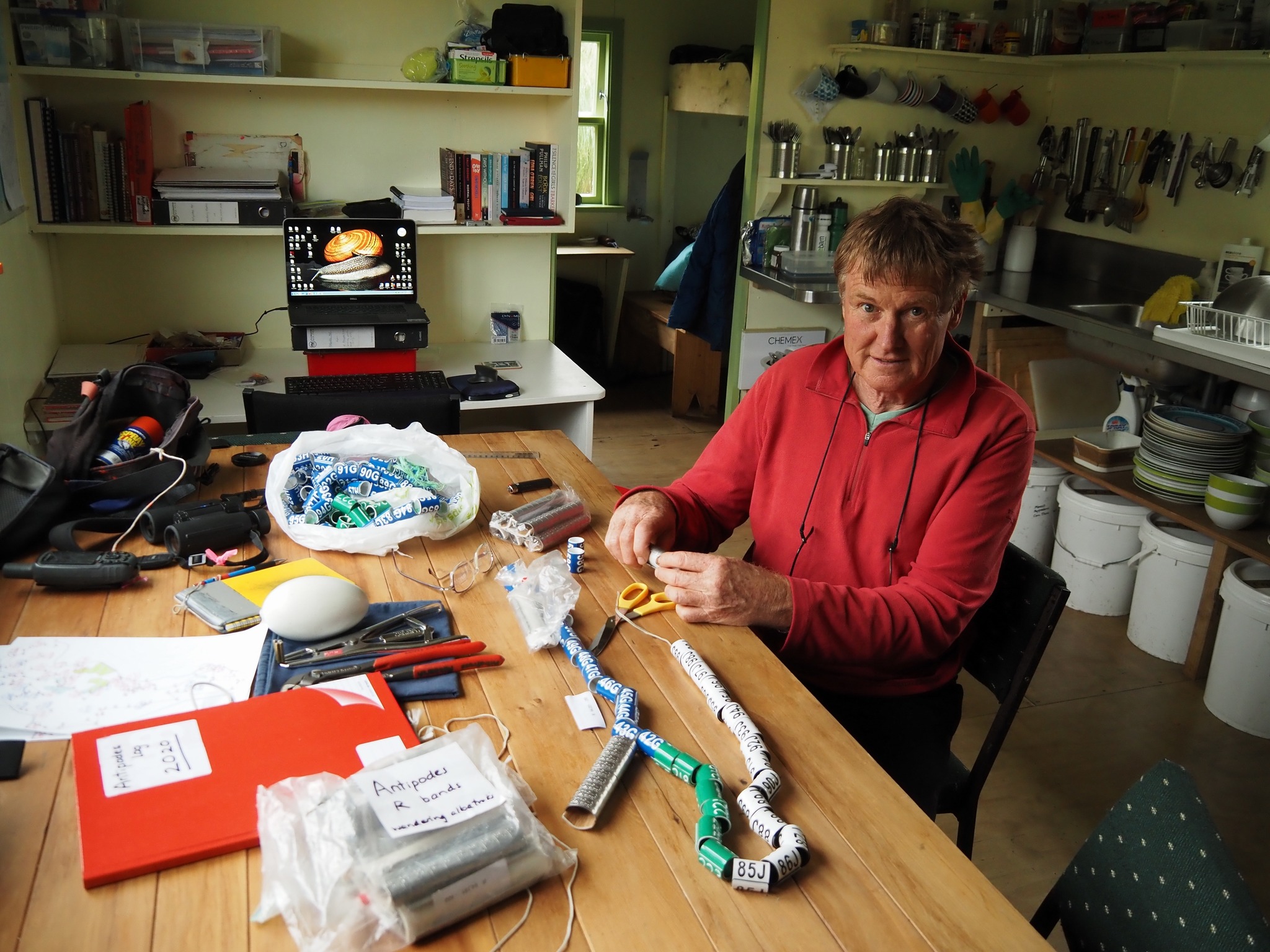
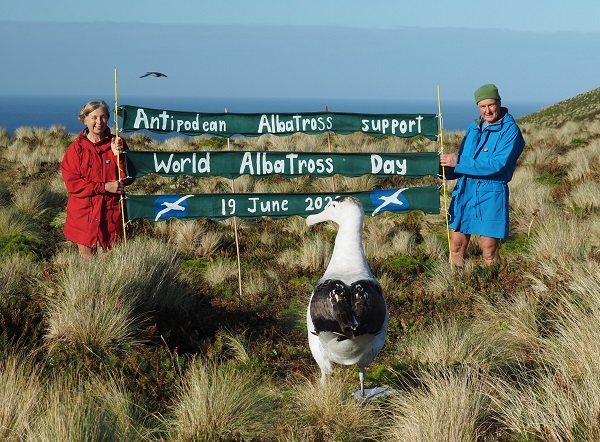
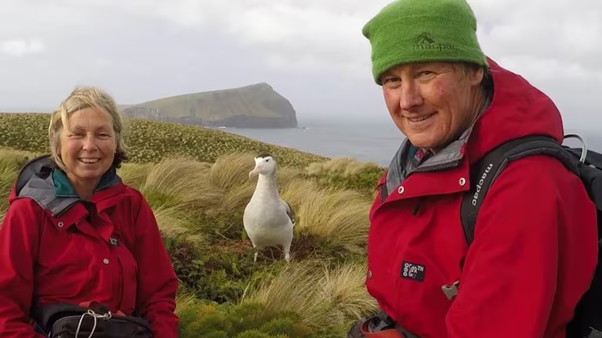 A matched pair: Kath Walker ONZM and Graeme Elliott ONZM on Antipodes Island flank an Antipodean Albatross
A matched pair: Kath Walker ONZM and Graeme Elliott ONZM on Antipodes Island flank an Antipodean Albatross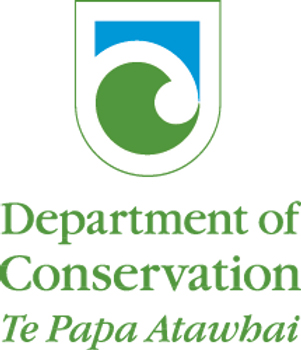
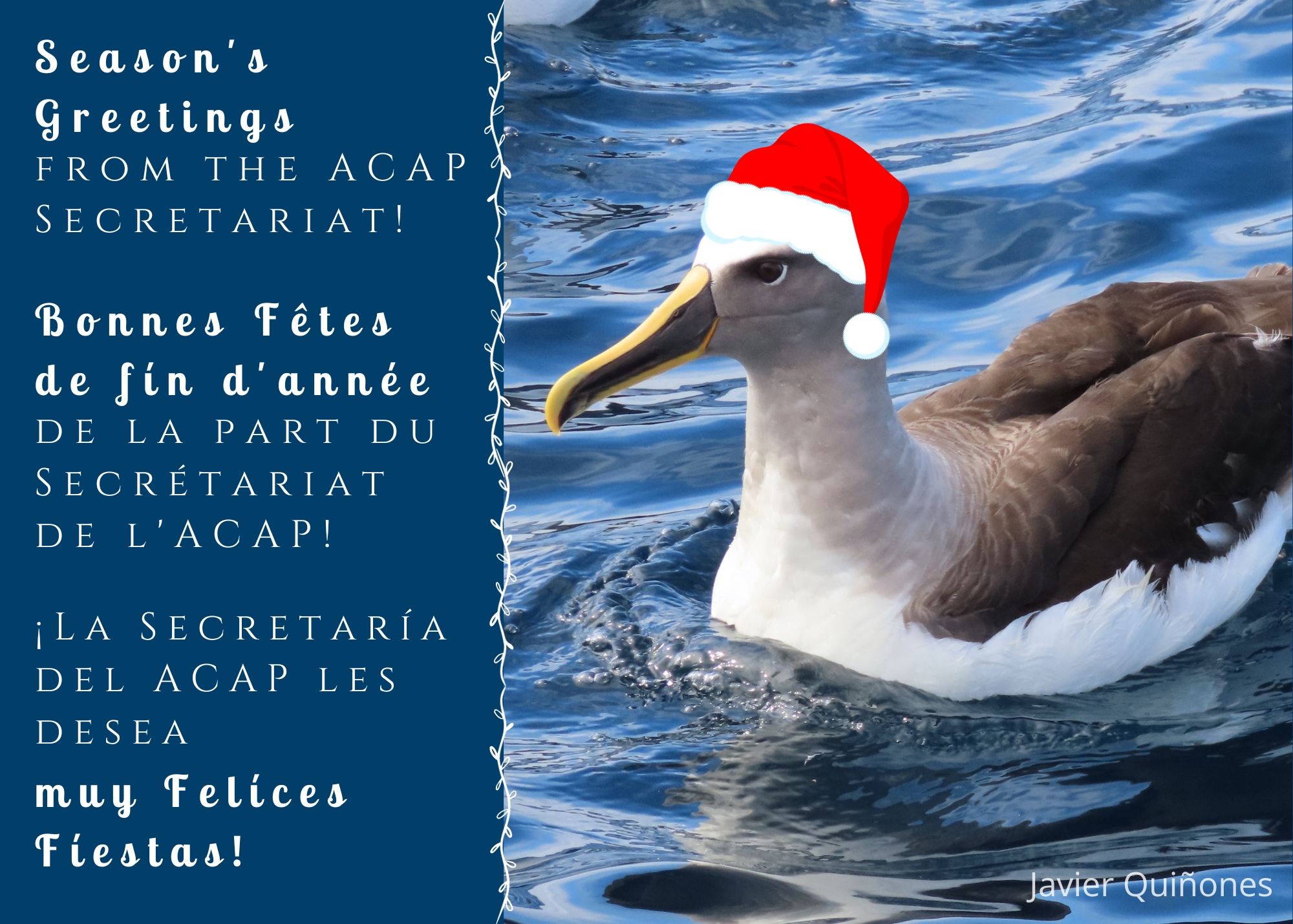 A Buller's Albatross in a rather fetching festive hat. Photograph by Javier Quiñones
A Buller's Albatross in a rather fetching festive hat. Photograph by Javier Quiñones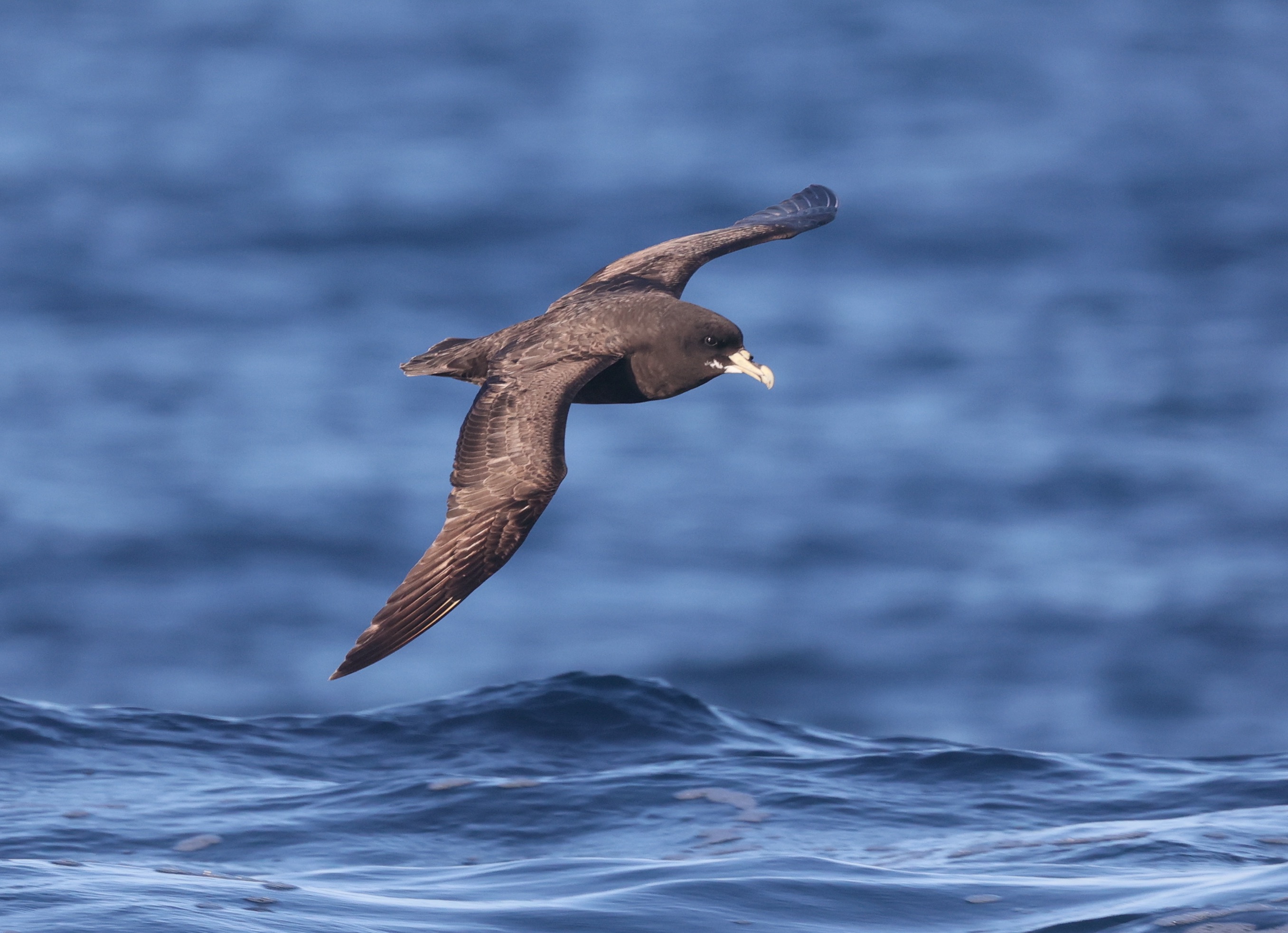 A Vulnerable ACAP-listed
A Vulnerable ACAP-listed